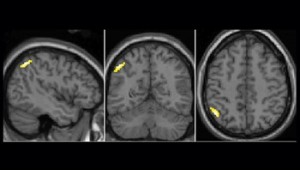As I was reading through the blogs, I came across a post that discussed the disadvantages to cramming for tests. This got me wondering, as I have always found I’ve done just fine by cramming for tests. What is it that makes me different from others that my brain would actually prefer cramming? What is it that I do differently? My conclusion: I translate.
Almost every time I study, I translate the English to Spanish. I’m not totally bilingual, nor does my family speak Spanish, I just realized in middle school that I was much better in Spanish than all my other classes. I realized that translating the words somehow allowed me to memorize them quicker than if I was just memorizing regular English vocabulary words. So, in order to increase my knowledge of Spanish and retain more information when studying in English, I began translating everything, back and forth. Now, it has almost come as second nature. But what are the other added benefits to having a ‘bilingual brain?’ According to this study, how the brain organizes languages has not totally been concluded, however technological advances show that bilingual people, whom rapidly toggle back and forth between two languages show more activity in the right hemisphere in the brain that monolingual speaker, which could help attention and control.
In the past, researchers had thought that exposing children to multiple languages too early on might delay their language schools, however this has recently been shown to be completely false. New research shows that bilingual children are able to learn words quicker than monolingual, nor do they show any “language confusion.”
“Scientists are learning that speaking more than one language may have cognitive benefits that extend from childhood into old age” (BrainFActs.org)
According to new research, the brain develops some advantages over those who are monolingual. This study suggests that those we are fluent in two languages, particularly since early childhood, both enhances their ability to concentrate as well as protect against dementia and other age-related cognitive declines.
The article suggests that children also have advantages when it comes to school. Bilingual students are able to focus on a task and tune out distractions. They also have an enhanced ability to concentrate, which is a sign of a healthy memory. The researchers suggest that managing two languages allows the brain to sharpen, to retain and focus information while ignoring the irrelevant information. This may explain why I find it easier to study and focus in comparison to others.
This article refers to bilingual people as “brain bodybuilders. Researcher Ellen Bialystok, a psychologist at York University in Toronto, agreed with the idea that bilingual people are more efficient at higher-level brain functions, according to the article. This is because bilingual people are constantly switching between languages, which allows them to choose with to use and which to ignore. According to the study, the brain of monolingual people had to work much harder during tasks than bilingual people.
The study also shows that bilingual adults have denser gray brain matter, or the brain tissue packed with information-processing nerve cells and fibers.) This was especially found in the left hemisphere of the brain, where most of the language and communication skills are controlled. This was the strongest in people who were immersed in two languages before the age of five, and were proficient at their second language.
Research also suggests that bilingualism may delay the onset of age-related dementia, such as Alzheimer’s disease. Scientists don’t particularly know why, but they theorize that speaking two languages may increase blood flow and oxygen to the brain, and keep nerve connections healthy.
This Tedtalk further explains the advantages of being bilingual.
I learned a lot from this specific study, and I am glad I now have a better understanding of how my brain particularly functions. I’ve always found it easier to concentrate when I translate things back and forth, and this study explained why. I don’t think this study could have suffered from anything such as the Texas sharpshooter or file drawer problem, since this is relatively new research and many studies came to the same conclusion about brain activity. I am pleased with the results with this study, I believe that they did a good job concluding the information. I would like to see the brain measured during more complex tasks, other than focusing on a single word. I think it would be beneficial to study the effects of cramming on a bilingual brain, since the bilingual brain is said to be able to focus and concentrate on relevant information compared to that of a monolingual.


it’s very fascinating that as a person of trilingual, I just don’t consider myself are possesses these abilities you mention in the passage. but some time’s I do feel I will react a little bit quicker than others when it comes to new things.
I immediately thought of one of roommates who is from another country, he speaks english when in school and spanish when he is around his friends or family. Which i guess that would make him a coordinate bilingual. The most interesting part about this is some years ago they actually thought knowing more then one language was an handicap that hindered you from learning.
I thought it was very interesting to learn how being bilingual can help a person. Something that I find intersting is what would you actually define as bilingual. I have a a friend who was born in another country, and while she can speak her native language she can not speak it or write it. So, it would be interesting to see how the brains of people in that situation are affected.